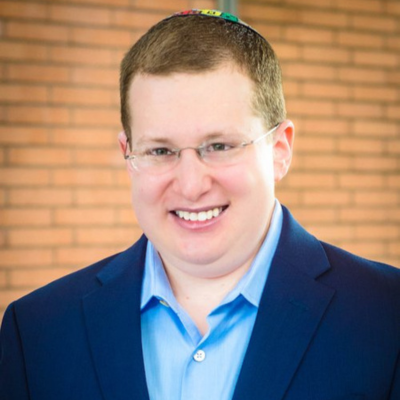The story of Korach is a troubling tale of rebellion and divine retribution. Our Torah vilifies him, and our Talmud doubles down, detailing and reiterating his torturous ruin. The rabbis describe Korach and his followers with such indignation, such contempt! In their eyes, Korach is a lost cause. And yet, one rabbi voices another opinion.
In the Talmud, Sanhedrin 109b, Rabbi Yehuda ben Beteira calls Korach an aveidah hamitbakeshet, a lost item that one still seeks. Unlike others, Rabbi Yehuda does not feel ye’ush, a sense of resignation or despair that a lost item, or in this case a lost person, would not or could not be recovered. He compares Korach to the author of Psalm 119, a lengthy acrostic in which the author acknowledges their errors and aspires for a better path. Rabbi Yehuda wishes for a Korach who would utter, “Would that my ways were firm in keeping Your laws…I will keep Your laws; do not utterly forsake me…May Your steadfast love reach me, Adonai, Your deliverance…” (Psalm 119:5, 8, 41). Unlike his colleagues, unlike Moses, perhaps even unlike God, Rabbi Yehuda ben Beteira holds onto hope that even Korach can make teshuvah. Even more, Rabbi Yehuda seeks it out.
In our online lives, we continually face challengers who frustrate us by their beliefs and their behavior. While we may not go so far as to hope for the fires or chasms of Korach’s punishment, we are often quick to take drastic action. What do we do? We block. We unfollow. We unfriend. We sever what for so many of us has become the primary connection to those outside our ever-shrinking group of close friends and family. We do it out of anger. We do it out of frustration. We do it out of loathing. We do it out of contempt. And that virtual contempt is bleeding into the real world.
Find more commentaries on Parshat Korach.
In his book Blink, author Malcolm Gladwell describes the work of Dr. John Gottman, a psychologist who studies divorce. As Gladwell describes, Gottman has honed his skill at recognizing more than 20 different signs and emotions to evaluate a relationship. One of these behaviors stands above the rest as the most destructive, the single biggest indicator that a couple will divorce. That pattern is contempt.
On an episode of his podcast, journalist Ezra Klein interviewed author Sheila Liming, who wrote a book called Hanging Out about increasing feelings of loneliness and isolation among Americans. There, Klein explored the difference between anger and contempt:
…Anger is a constructive emotion often. It’s an emotion that wants resolution…when I’m angry with you, what I want to do is have some kind of interaction around that anger. Anger is relational. And contempt is the opposite. Contempt is, I just can’t even. I’m just not going to deal with you. You’re beneath notice. You’re not part of my circle anymore. You’re not worth engaging with…
When we escalate from anger to contempt, to what 19th century philosopher Arthur Schopenhauer described as “the unsullied conviction of the worthlessness of another,” we move our gaze from a person’s actions to their individuality, their personhood. We elevate ourselves and look down upon them with derision and scorn. We no longer see a person made b’tzelem Elohim, in the image of God, and by losing sight of another, we lose sight of ourselves.
Sign up to receive (M)oral Torah in your inbox each week.
In Numbers 16:33, we learn that Korach and all his people “went down alive into Sheol…the earth closed over them, and they vanished from the midst of the congregation.” This is not the result of anger. When we feel anger, we desire resolution. When we feel contempt, we seek to erase that person from existence. And now, with the ease of clicking a button, we can effectively do so.
As Klein explains,
The dominant negative emotion online is contempt. And the dominant negative emotion in real interactions is anger. In real life, you get pissed off at a person. Then maybe you have a fight… But those things bring some kind of healing oftentimes or some kind of new space the two of you can occupy together, whereas online, I think you get used to saying, well, I’m done with you. I can’t with you. And I wonder how much, if you get more and more used to that online, it becomes your reaction to conflict in real life.
The next time you consider blocking, unfollowing, or unfriending, the next time your cursor hovers over that button, remember the compassion of Rabbi Yehuda ben Beteira. If you feel angry, be angry! Then engage with the hope of resolution.
Yes, it is an unfortunate truth that some people truly are toxic, and while I believe everyone is capable of teshuvah, sometimes it is healthier to disconnect. If we must make that decision, let us make it from a place of thoughtful compassion for ourselves and others, and not from a place of raging contempt for them.
Rabbi Daniel K. Alter looks forward to beginning his new role as the first Rabbi-Educator of Temple Kol Emeth in Marietta, GA, next month. He moonlights as a writer for Torah Aura, a Jewish education publishing company, and is an established geek (@DarthRabbi) and an aspiring golfer.

